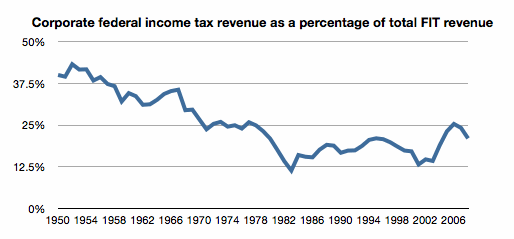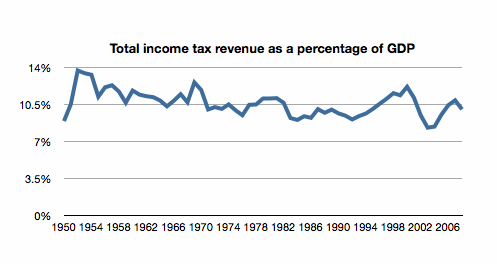IndependentlyPoor
Thinks s/he gets paid by the post
Kewl! Thanks. Yesterday, I spent some frustrating hours on the IRS site trying to tease out similar data.
Here is the chart you pointed me to, annotated with the relevant tax law changes. I included only federal individual and corporate taxes. I think this link will reproduce exactly what I am looking at:
Government Taxes and Revenue Chart in United States 1990-2008 - Federal State Local
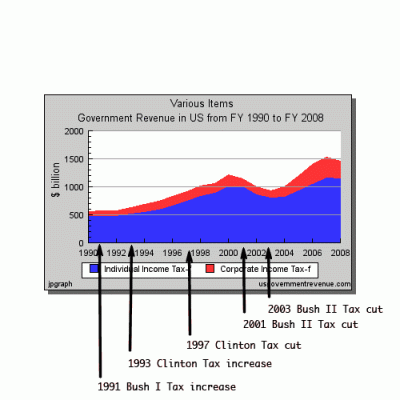
and here is the same data, adjusted for constant 2008 dollars.
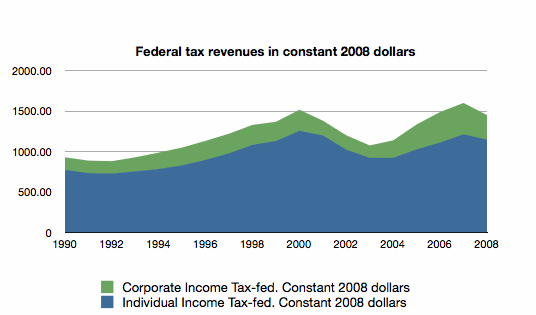
I believe the above data is too confounded with the effects of the internet bubble and the housing bubble to allow a definitive statement about tax rates and revenue.
Here is some more info on these tax acts if anybody is interested:
Omnibus Budget Reconciliation Act of 1990 - Wikipedia, the free encyclopedia
Omnibus Budget Reconciliation Act of 1993 - Wikipedia, the free encyclopedia
Taxpayer Relief Act of 1997 - Wikipedia, the free encyclopedia
Economic Growth and Tax Relief Reconciliation Act of 2001 - Wikipedia, the free encyclopedia
Jobs and Growth Tax Relief Reconciliation Act of 2003 - Wikipedia, the free encyclopedia
Just for kicks and grins, here are the tax revenues as a percentage of the GDP
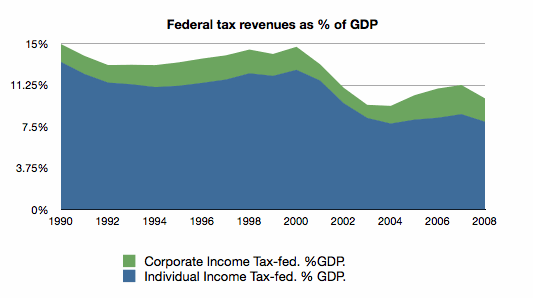
Originally, I thought it would be interesting to figure out how capital gains tax revenue changed as the marginal rates were lowered, but haven't been able to find the appropriate data yet.

